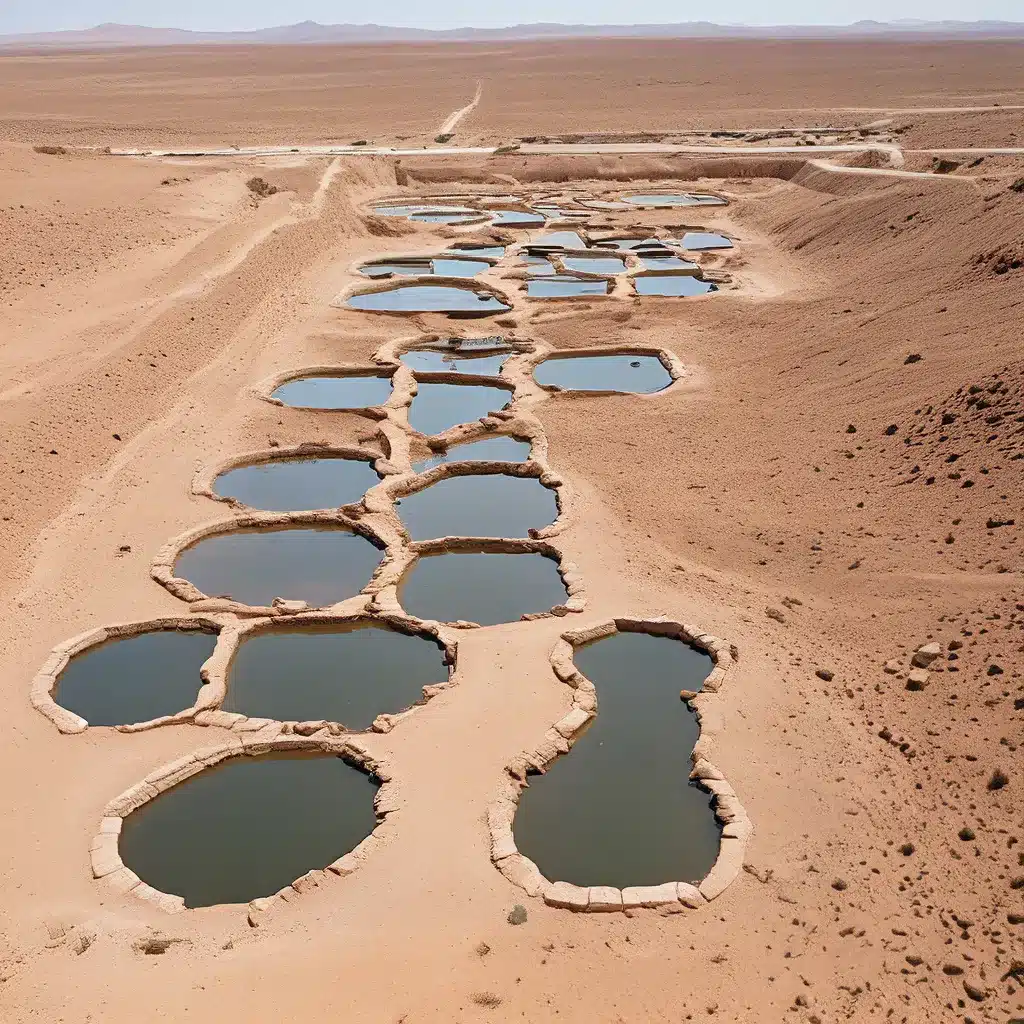
The Thirst for a Solution
As I gaze out over the barren, sun-baked landscape, I can’t help but feel a sense of unease. This arid region, once teeming with life, now faces a dire water crisis. The streams have dried up, the reservoirs are dwindling, and the residents are struggling to meet their most basic needs. It’s a stark reminder of the fragility of our water resources and the urgent need to find innovative solutions.
But what if I told you that the key to quenching this thirst might be found in the very wastewater we’ve been trying to dispose of? That’s right – the solution to our water woes could be right under our noses, or rather, in our sewer systems.
The Power of Wastewater Reuse
Wastewater reuse is a game-changing concept that has the potential to revolutionize the way we manage our water resources, particularly in arid regions like this one. The premise is simple: instead of letting all that used water go to waste, we can treat it and repurpose it for a variety of beneficial uses.
According to the EPA, recycled water can satisfy most water demands as long as it is adequately treated to ensure water quality appropriate for the intended use. This includes applications like agricultural and landscape irrigation, industrial processes, toilet flushing, and even groundwater recharge.
But the beauty of wastewater reuse goes beyond just meeting our water needs. It also offers tremendous environmental benefits. By providing an additional source of water, it can help us reduce the diversion of water from sensitive ecosystems, decreasing wastewater discharges, and even creating or enhancing wetlands and habitats. It’s a win-win for both people and the planet.
Overcoming the Obstacles
Now, I know what you’re thinking: “Wastewater reuse? Isn’t that kind of… gross?” Well, I’m here to tell you that the days of cringing at the idea of using recycled water are long gone. Thanks to advancements in wastewater treatment technology and extensive health studies, we now know that recycled water can be just as safe, if not safer, than our traditional water sources.
Recent research has shown that the possible health risks from exposure to chemical contaminants and disease-causing microbes in wastewater reuse are actually lower than the risks associated with our existing water supplies. And with rigorous regulatory oversight and public outreach, we can ensure that water recycling projects are developed and implemented with the utmost care and transparency.
Of course, the journey to widespread wastewater reuse hasn’t been without its challenges. Institutional barriers, varying agency priorities, and public misconceptions can all make it difficult to get these projects off the ground. But innovative water treatment companies and forward-thinking communities are rising to the occasion, working together to overcome these obstacles and make wastewater reuse a reality.
A Sustainable Future
As the water crisis continues to intensify, it’s clear that we need to rethink our approach to water management. And that’s where wastewater reuse comes in. By tapping into this valuable resource, we can create a more sustainable and resilient water supply, one that can help us weather the challenges of drought, population growth, and climate change.
Sure, it might take some time and effort to get these systems up and running, but the payoff is well worth it. Imagine a future where our arid landscapes are no longer parched and barren, but thriving with lush greenery and abundant wildlife. A future where our communities have a reliable, locally-controlled water source, and where our precious ecosystems are protected and nurtured.
It’s a future that’s within our grasp, if we’re willing to embrace the power of wastewater reuse. So let’s roll up our sleeves, get to work, and show the world that even in the driest of regions, the solution to our water woes can be found in the very waste we’ve been trying to get rid of. After all, as the old saying goes, “one person’s trash is another’s treasure” – and in this case, that treasure could be the key to a more sustainable, water-secure tomorrow.


